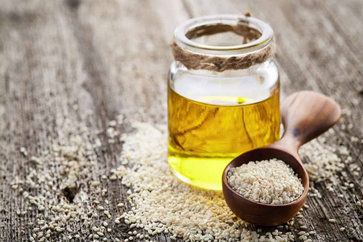How to Make Mosquito Repellent at Home? A Nature’s Shield
Mosquitoes, seemingly innocuous insects, carry some of the deadliest diseases known to humanity. A single mosquito bite can transmit diseases such as malaria, dengue, chikungunya, and more. With the rise of vector-borne diseases, finding effective and eco-friendly ways to control mosquito populations has become crucial. 
One such natural approach is utilizing mosquito-repellent plants, which offer aromatic properties that keep these pests at bay. In this article, we’ll delve into the world of mosquito-repellent plants and explore how they can help protect us from these disease-carrying insects.
The Danger of Mosquitoes
Mosquitoes are not just bothersome insects; they are carriers of diseases that can have devastating effects on human health. Diseases like malaria, dengue fever, chikungunya, and elephantiasis are transmitted through their bites.
These illnesses can lead to significant morbidity and even mortality in some cases, particularly in regions where proper healthcare and preventive measures are lacking.
Mosquito Repellent Plants
There are numerous plants that act as effective mosquito repellents. Some of the most notable ones include:
1. Lavender: Lavender not only offers a calming and pleasant fragrance but also acts as a mosquito repellent. The scent of lavender is known to discourage mosquitoes from approaching, making it a great choice for both indoor and outdoor areas.
2. Citronella: Citronella is one of the most well-known natural mosquito repellents. It’s a common ingredient in many commercial insect-repellent products, such as candles and sprays. The distinct lemony scent of citronella masks the attractants that mosquitoes are drawn to, making it effective for keeping them away.
3. Lemon Eucalyptus: The oil derived from the lemon eucalyptus plant contains compounds that have been recognized by the CDC (Centers for Disease Control and Prevention) as effective natural mosquito repellents. The scent of this oil can help create a barrier against mosquito bites.
4. Peppermint: Apart from its culinary uses and refreshing aroma, peppermint emits a fragrance that mosquitoes dislike. By planting peppermint or using peppermint-based products, you can help deter mosquitoes from your surroundings.
5. Marigold: Marigolds not only add vibrant color to gardens but also help repel mosquitoes. The strong scent produced by marigolds comes from compounds in their leaves and flowers, helping to deter mosquitoes and other insects.
6. Rosemary: Rosemary is a fragrant herb that is commonly used in cooking, but it also has mosquito-repellent properties. Its woody aroma can help keep mosquitoes at bay when planted in outdoor areas or near windows and doors.
7. Basil: Basil is another herb that serves as a natural mosquito repellent. The strong aroma of basil plants can help repel mosquitoes, making it a useful addition to your garden or patio.
8. Catnip: Catnip is known for its irresistible effect on cats, but it also has a powerful mosquito-repellent compound called nepetalactone. Planting catnip in your garden can help deter mosquitoes from the area.
9. Chrysanthemum: Chrysanthemums contain a natural insecticide called pyrethrin, which is commonly used in mosquito repellent sprays and products. Having chrysanthemum plants around can help keep mosquitoes and other insects away.
10. Lemon Balm: Lemon balm, with its lemony scent, is not only calming but also effective at repelling mosquitoes. It’s a member of the mint family and can be grown in gardens or potted indoors.
11. Geranium: Certain varieties of geraniums, such as the scented geranium, emit a fragrance that mosquitoes find unappealing. These plants can be grown in containers or in garden beds to help keep mosquitoes at bay.
12. Lavender Sage: Lavender sage is a hybrid plant that combines the mosquito-repelling properties of lavender with the aromatic benefits of sage. It’s a dual-purpose plant that can enhance your outdoor space while deterring mosquitoes.
These plants offer a natural and aesthetically pleasing way to reduce mosquito activity around your home. By incorporating a variety of these plants into your landscaping, garden, or even indoor spaces, you can create an environment that’s less attractive to mosquitoes, allowing you to enjoy your surroundings more comfortably.
Herbs That Works As Mosquito Repellents
1. Basil Plant
Basil is a mosquito-repellent plant, its leaves have a very pungent odor that keeps mosquitoes and other insects away. It is a well-known herb of Ayurveda for its various medicinal properties such as cough syrups, to mobilize bronchitis, asthma and chewing tulsi leaves also relieves colds and flu.
It is a plant that is found all over India and especially in every Hindu family as they worship it. All varieties of basil work as mosquito repellent, but cinnamon basil, lemon basil, and Peru are the best because they have very strong aromatic properties[1].
2. Marigolds Plant
It is one of the most common plants that are found in every garden. Marigold plant grows from about 6 inches to 3 feet tall it generally grows in sunny areas. Its growth is slower when planted in the shade.
In India Hindu, the family used it for worship as well as a medicinal remedy. In Ayurveda, it is used for serious skin conditions like psoriasis and eczema and is used for acne treatment of rashes as well as for infections caused by fungi including ringworm.
The Marigold plants have mosquito-repellent properties to their peculiar smell. There are different two types of marigolds and they all have the property of repelling mosquitoes[2].
3. Citronella Plant
Its botanical name is “Citrosum Pelargonium” This plant is well known for deterring mosquitoes, as a result, it is also known mosquito plant. It requires a warm climate, grows about two meters in height, and blooms every year. The flowers of the plant citronella are lavender in color.
The oil of the Citronella plant is also used for making herbal products and perfumes. So seeing its benefit, you may want to reconsider planting citronella in your garden[3].
4. Lemongrass Plant
It is a perennial plant that requires a warm climate. It grows up to two meters in height and is found mainly in India. It is also an important herb of Ayurveda used for its various medicinal properties. The green lemongrass not only makes your yard look bright but it fills it with full of life.
Lemongrass contains the properties known as “citronella oil” which is known for its insect-repellent property. The oil of Lemongrass is used as a preservative as well as in pesticides[4].
5. Rosemary Plant
The rosemary is another shrub, which comes on the list of repelling plants. It grows larger than the usual shrubs that are about 5.4 feet in height with blue flowers. It is also an important herb of Ayurveda used for its various medicinal properties.
It is also known as a drought-resistant shrub that grows very faster with less water. The leaves of this plant are used for culinary purposes. So planting Rosemary in the garden may have multiple purposes and benefits[5].
6. Lavender Plant
This plant also happens to be a mosquito repellent it belongs to the family of Lamiaceae. It is also known for increasing the beauty of a garden. It grows about 4 meters high and requires a sunny climate. It is said that growing lavender plants is an easy job[6].
This means you will not have any problem with planting and after it hardly requires any attention.
How to Make Natural Mosquito Repellent At Home
Making your own natural and organic mosquito repellent at home is very simple. It is also safer for the whole family, rather than when repellents are bought from the market that is loaded with harmful chemicals.
There are different ways to make a natural insect repellent that can be used without worrying about how harmful it can be. Making mosquito repellent is very easy, and requires very few ingredients that can easily be found at your local medical or food store.
Mosquito Repellent Recipe No 1 :
To make this organic mosquito repellent, you will need the below ingredients
- ½ cup vodka
- ½ cup of organic apple cider vinegar
- 2 tablespoons of lemon balm (citronella) essential oil.
Now mix all the ingredients in a jar and shake well. You can store this oil in an airtight bottle for later use.
How to use: You can apply a few drops on your skin this way mosquito gets away from you.
Mosquito Repellent Recipe No 2:
To make this organic mosquito repellent, you will need the below ingredients
- 1 cup of grain alcohol (190 proof)
- 1 teaspoon lemon essential oil
- 2teaspoon of rosemary essential oil
- ½ teaspoon of lemon balm (citronella) essential oil.
Now mix all the ingredients in a jar and shake well. You can store this oil in an airtight bottle for later use.
How to use: You can apply a few drops on your skin this way mosquito gets away from you.
Note: Be careful when using an alcohol-based natural mosquito repellent as alcohol can dry the skin if used too frequently.
Mosquito Repellent Recipe No 3:
To make this organic mosquito repellent, you will need the below ingredients
- 2 tablespoons of sweet almond oil
- 1 tablespoon of Aloe Vera gel
- 25 drops of lemon balm (citronella) essential oil.
Now mix all the ingredients in a jar and shake well. You can store this oil in an airtight bottle for later use.
How to use: You can apply a few drops on your skin this way mosquito gets away from you.
Note: The mixture may lose its effectiveness over time so never make Mosquito Repellent in more quantity and use not more than 2-3 months. Natural mosquito repellent having an oil base is much safer to use on the skin rather than an alcohol base. As it can be used without worrying about drying the skin in fact, it helps to keep skin hydrated and soft. This way it will give you double benefit freedom from mosquitoes and a beautiful colorful garden.
DIY Ayurvedic Mosquito Repellent Recipe
Ingredients You’ll Need
- Neem Oil
- Eucalyptus Oil
- Coconut Oil
- Tulsi (Holy Basil) Leaves
- Camphor
- Citronella Essential Oil
- Empty Spray Bottle
Step-by-Step Instructions
1. Prepare Neem-infused Oil:
- In a bowl, mix neem oil and coconut oil in a 1:1 ratio.
- Heat the mixture until well combined. Let it cool and strain out any solid particles.
2. Add Essential Oils:
- To the neem-infused oil, add a few drops of eucalyptus oil and citronella essential oil.
- These oils are known for their mosquito-repelling properties and pleasant scent.
3. Blend Tulsi Leaves and Camphor:
- Grind fresh tulsi leaves and camphor together to create a fine paste.
- Add this paste to the oil mixture and stir well.
4. Create the Repellent Spray:
- Pour the prepared mixture into an empty spray bottle.
- Shake well before each use to ensure the ingredients are evenly distributed.
Using Your Ayurvedic Mosquito Repellent
Application and Precautions
- Apply the repellent evenly on exposed skin before heading outdoors.
- Reapply every few hours for maximum effectiveness.
- Conduct a patch test before use, especially if you have sensitive skin.
- Avoid applying near the eyes and mouth.
Additional Tips to Keep Mosquitoes Away
- Keep your surroundings clean and dry to eliminate breeding grounds for mosquitoes.
- Use mosquito nets and screens to create a barrier indoors.
- Opt for light-colored clothing that covers most of your body when spending time outdoors.
FAQs About Mosquito Repellent Plants
1. Are mosquito repellent plants effective in repelling mosquitoes?
Yes, many mosquito repellent plants emit fragrances that mosquitoes find unpleasant, which helps to keep them away. However, it’s important to note that the effectiveness can vary based on factors like the type of plant, the concentration of its active compounds, and the environment.
2. Can I rely solely on mosquito-repellent plants to protect myself from mosquito bites?
While mosquito-repellent plants can provide some level of protection, it’s recommended to use them in combination with other preventive measures. Using mosquito nets, and screens, and wearing appropriate clothing can enhance your overall defense against mosquitoes.
3. Do these plants require special care compared to regular plants?
Mosquito-repellent plants generally have care requirements similar to other plants. They need proper sunlight, watering, and occasional pruning. It’s important to research the specific needs of each plant to ensure they thrive.
4. Can I plant mosquito repellent plants indoors?
Yes, many mosquito-repellent plants can be grown indoors in pots or containers. Citronella, lemon eucalyptus, and lavender are some examples that can adapt well to indoor environments.
5. Do these plants only repel mosquitoes or other insects as well?
While these plants are primarily known for their mosquito-repelling properties, some of them may have an effect on other insects too. However, their effectiveness against different insects can vary.
6. Do mosquito repellent plants have any additional benefits?
Yes, many of these plants have additional benefits. For example, lavender is known for its calming effects, and peppermint has various culinary and medicinal uses. Incorporating these plants can enhance your environment in multiple ways.
7. Can I use the leaves or essential oils from these plants as natural repellents?
Absolutely! Many people use the leaves, stems, or essential oils from mosquito-repellent plants to create natural repellent solutions. However, it’s important to dilute essential oils properly and perform patch tests to avoid any adverse reactions.
8. Are these plants safe for pets and children?
While many mosquito-repellent plants are safe, it’s a good idea to research each specific plant’s safety for pets and children. Some plants, when ingested, can be toxic. If you’re uncertain, consult with a veterinarian or pediatrician.
9. Do these plants need to be grown from seeds or can I buy them as mature plants?
Both options are available. You can either grow these plants from seeds or purchase mature plants from nurseries. Buying mature plants may give you quicker results in terms of mosquito repellency.
10. How often do I need to replace or refresh these plants for maximum effectiveness?
The effectiveness of mosquito-repellent plants may diminish over time. Pruning, harvesting leaves, and ensuring healthy growth can help maintain their effectiveness. Depending on the plant, you might need to replace or refresh them periodically.
Remember that while mosquito repellent plants can be a valuable addition to your mosquito control efforts, a comprehensive approach involving various strategies is the most effective way to minimize mosquito exposure and bites.
It is interesting that most flowering plants that have aromatic properties are mosquito repellent, so grow flowering plants in the garden, decorate your home and stay healthy.



























Namaste sir,
Thank you for your good guidelines in Ayurvedic.
Please first guide available above all ingredients, manufacturers name, phone no.
I require any strong Ayurvedic raw materials against Cypermethrin for insects repellent on Animals & also use in domestic.
Sir wait your reply.
Thanking you.
Sandip L. Shah
M/s. AEROMAC ( INDIA ) INC. A – 2, Shil Apartment, Near Mirambika Jain Temple, Area : Naranpura, Ahmedabad : 380013. Gujarat. Ph M : 94265 79089.
E mail : aeromac_9@yahoo.co.in
I found your web site via Google whilst searching for a natural mosquito repellent, your website came up, recipe is good i will definitely try it.